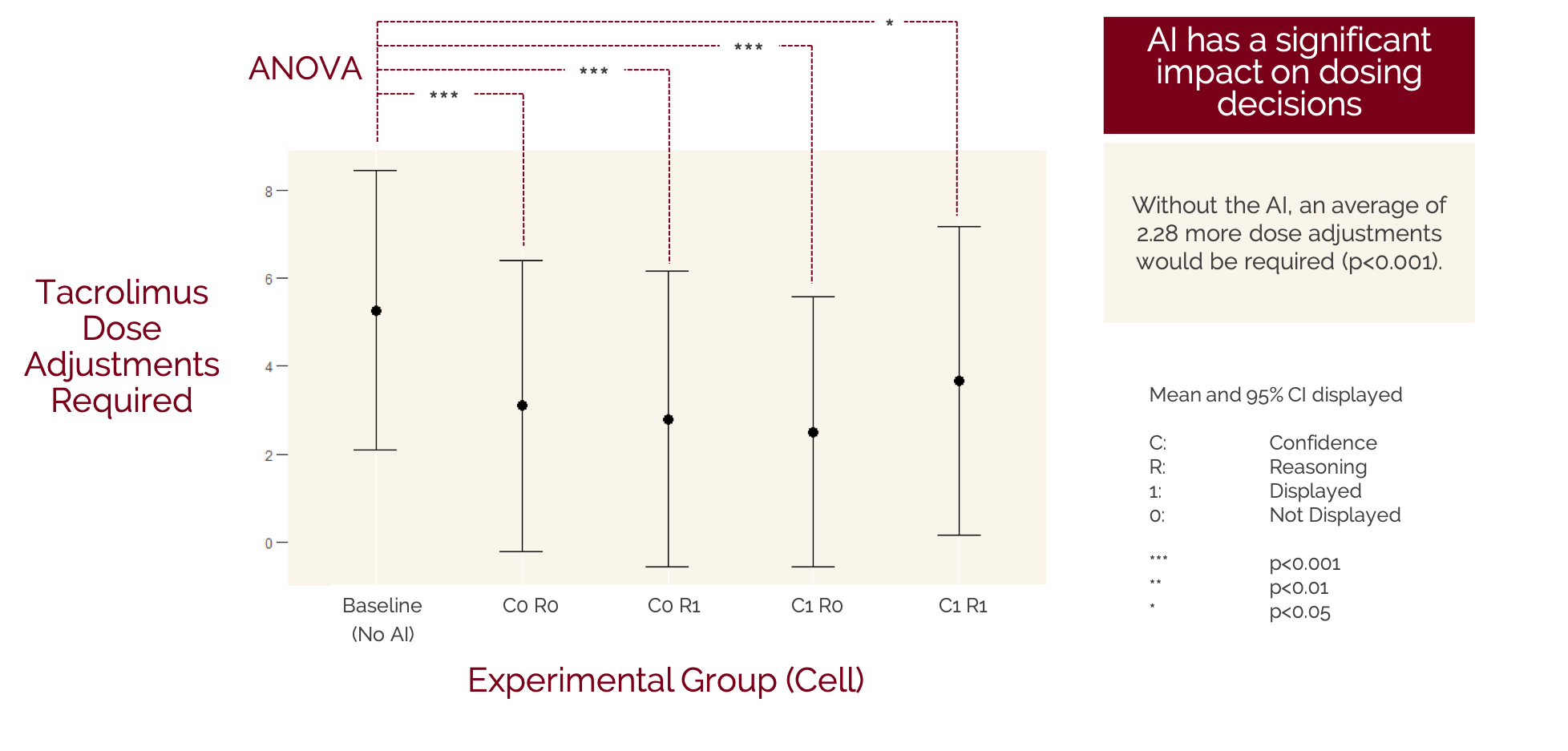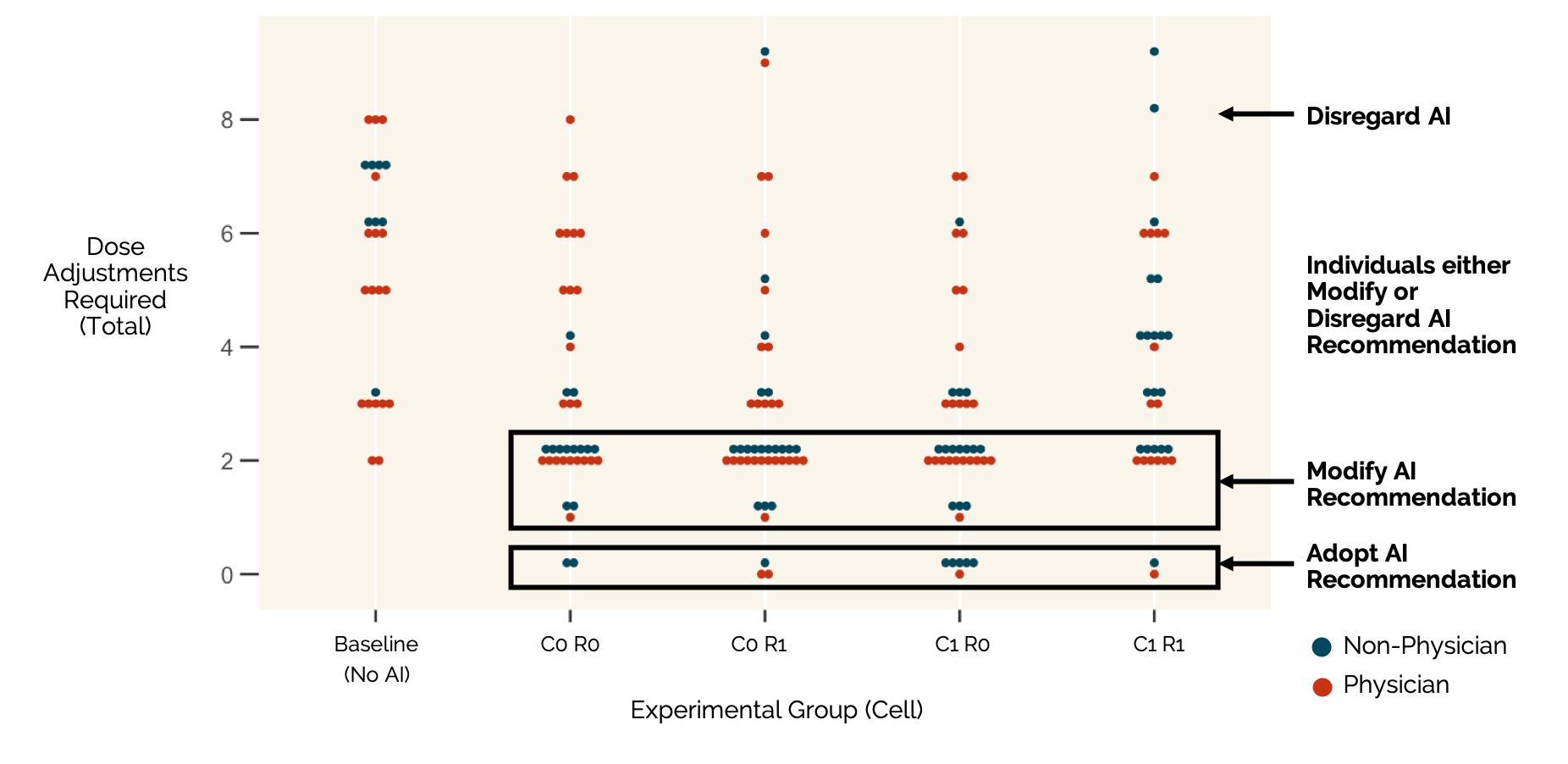Trust and Transparency in Artificial Intelligence-Aided Immunosuppression Decisions
Information and Decision Sciences, University of Minnesota, Minneapolis, MN
Meeting: 2020 American Transplant Congress
Abstract number: 225
Keywords: Area-under-curve (AUC), FK506, Kidney transplantation, Prediction models
Session Information
Session Name: Novel Tools to Assess Immunosuppressive Efficacy
Session Type: Oral Abstract Session
Date: Saturday, May 30, 2020
Session Time: 3:15pm-4:45pm
 Presentation Time: 3:39pm-3:51pm
Presentation Time: 3:39pm-3:51pm
Location: Virtual
*Purpose: In transplant, there is significant interest in using Artificial Intelligence (including machine learning or predictive models) Clinical Decision Support Systems(AI CDSS). Properly designing and incorporating these systems into transplant patient care requires an understanding of how trust in AI systems develop and how AI recommendations are incorporated into treatment decisions. Prior research into system trust has not considered experts making high-stakes decisions they have made thousands of times before, such as a tacrolimus dosing decision. This study evaluates how transplant clinicians incorporate AI CDSS recommendations and whether transparency about the confidence and reasoning behind an AI recommendation increases trust.
*Methods: This question was explored with a mixed methods investigation incorporating purposively sampled semi-structured interviews followed by a computerbasedexperiment in which kidney transplant clinicians (n=191, average years in transplant=10.8) including surgeons, nephrologists, and pharmacists made tacrolimus dosing decisions for several patient cases using simulated AI CDSS recommendations.
*Results: Providing AI recommendations for tacrolimus dosing reduced the average number of tacrolimus dose adjustments by about half (while complete adoption of the recommendations would have required zero dose adjustments).
When provided AI recommendations, some clinicians adopted the recommendation, others disregarded the recommendation, but interestingly, most clinicians modified the recommendation (choosing a dose between the AI recommendation and that chosen in the absence of the AI).
Contrary to prior research about trust in recommendation systems, disclosing the level of confidence (e.g. 95% confident) or reasoning behind the recommendation did not affect trust in the AI.
*Conclusions: AI recommendations are incorporated into transplant immunosuppression decisions but clinicians are reluctant to completely disregard typical protocols for tacrolimus titration. There is significant heterogeneity among clinician response, and AI recommendations are either adopted, disregarded, or modified.Better understanding how AI tools are used is essential to using them properly.
To cite this abstract in AMA style:
Clement J. Trust and Transparency in Artificial Intelligence-Aided Immunosuppression Decisions [abstract]. Am J Transplant. 2020; 20 (suppl 3). https://atcmeetingabstracts.com/abstract/trust-and-transparency-in-artificial-intelligence-aided-immunosuppression-decisions/. Accessed February 25, 2026.« Back to 2020 American Transplant Congress


